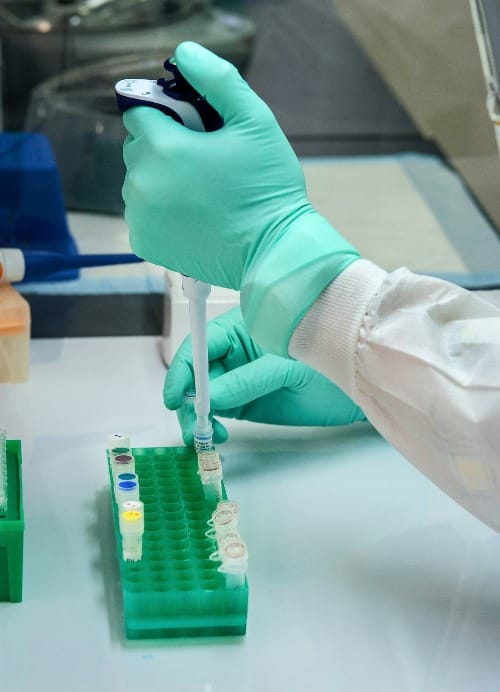Combining calcium with vitamins D3, K1, and K2 offers significant health benefits, particularly for bone and cardiovascular health. Vitamin D3 enhances calcium absorption, while vitamins K1 and K2 ensure proper calcium utilization, directing it to bones and preventing arterial calcification. This synergistic interplay not only improves bone mineral density and reduces the risk of osteoporosis but also supports cardiovascular health by preventing calcium buildup in arteries.
Calcium's Role in Bone Health
Calcium is a critical mineral for bone health, playing a fundamental role in the development, maintenance, and strength of bones. Approximately 99% of the body's calcium is stored in the bones and teeth, where it forms calcium-phosphate complexes that provide structural integrity and hardness[4]. The remaining 1% circulates in the blood and is essential for various physiological functions, including muscle contraction, nerve transmission, and blood clotting[1][2][3].
Adequate calcium intake is necessary throughout life to ensure proper bone mineralization and to prevent bone-related disorders. During childhood and adolescence, calcium is vital for achieving peak bone mass, which is typically reached by the mid-20s. After this period, maintaining sufficient calcium levels helps to slow the natural bone loss that occurs with aging[3]. For adults, especially postmenopausal women and older men, adequate calcium intake is crucial to mitigate the risk of osteoporosis, a condition characterized by brittle and fragile bones[1][2].
Calcium must be obtained from dietary sources or supplements, as the body cannot produce it. Dairy products such as milk, cheese, and yogurt are among the best sources of calcium. Other good sources include leafy green vegetables, tofu, fish with edible bones like sardines, and calcium-fortified foods such as certain cereals and juices[2][3]. The bioavailability of calcium from these foods can vary, with dairy products generally offering higher absorption rates compared to plant-based sources[4].
The recommended daily intake of calcium varies by age and sex. For instance, adults aged 19-50 require about 1,000 mg per day, while women over 50 and men over 70 need approximately 1,200 mg daily to maintain bone health[2][3]. It is important to note that excessive calcium intake, particularly from supplements, can lead to adverse health effects such as kidney stones and cardiovascular issues[1].
In summary, calcium is indispensable for bone health, contributing to the formation and maintenance of strong bones and teeth. Ensuring adequate calcium intake through diet or supplements, as needed, is essential for preventing bone-related diseases and maintaining overall health[1][2][3][4].
Vitamin D3 and Calcium Absorption
Vitamin D3 plays a crucial role in calcium absorption, which is essential for maintaining bone health and preventing disorders such as osteoporosis. Vitamin D3 enhances the efficiency of calcium absorption in the intestines, ensuring that sufficient calcium is available for bone mineralization and other physiological functions[1][2][3]. Without adequate vitamin D3, the body cannot absorb enough calcium from the diet, leading to potential deficiencies and weakened bones[1][4].
The process begins when vitamin D3, obtained either through sun exposure or dietary sources, is converted into its active form, calcitriol, in the liver and kidneys. Calcitriol then increases the expression of calcium-binding proteins in the intestinal lining, facilitating the transport of calcium from the gut into the bloodstream[1][2]. This mechanism is vital for maintaining optimal calcium levels in the blood, which are necessary for bone formation, muscle function, and nerve transmission[1][3]
Dietary sources of vitamin D3 include fatty fish such as salmon, mackerel, and sardines, as well as fortified foods like milk, orange juice, and cereals[1][5]. However, it is challenging to obtain sufficient vitamin D3 from food alone, especially in regions with limited sunlight exposure. Therefore, supplementation is often recommended to ensure adequate levels, particularly for individuals at risk of deficiency, such as the elderly, those with darker skin, and people living in higher latitudes[1][2][5].
The recommended daily allowance (RDA) for vitamin D varies by age and health status. For most adults, the RDA is 600-800 IU, but higher doses may be necessary for those with specific health conditions or limited sun exposure[1][2]. It is important to note that excessive vitamin D intake can lead to hypercalcemia, a condition characterized by elevated calcium levels in the blood, which can cause vascular and tissue calcification and other health issues[1][4].
In summary, vitamin D3 is indispensable for the efficient absorption of calcium, which is critical for bone health and overall physiological function. Ensuring adequate vitamin D3 levels through sun exposure, diet, or supplementation is essential for preventing calcium deficiency and maintaining strong, healthy bones[1][2][3][4][5].
Vitamin K1 and Blood Clotting
Vitamin K1, also known as phylloquinone, is essential for blood clotting, a critical process that prevents excessive bleeding when injuries occur. It plays a pivotal role in the synthesis of prothrombin, a protein and clotting factor necessary for blood coagulation and bone metabolism[2]. Vitamin K1 is primarily found in green leafy vegetables such as spinach, kale, and broccoli, as well as in some fruits and oils[1].
The body relies on vitamin K1 to produce several proteins involved in the coagulation cascade, including four of the 13 proteins required for blood clotting[1]. Without adequate vitamin K1, the blood's ability to clot is compromised, leading to an increased risk of uncontrolled bleeding. This is particularly important for individuals taking anticoagulant medications like warfarin, as vitamin K1 can counteract the effects of these drugs, necessitating careful monitoring and consistent intake[1][3].
Newborns are particularly vulnerable to vitamin K deficiency, which can lead to hemorrhagic disease. To prevent this, they are often given a vitamin K1 injection shortly after birth[3]. In adults, vitamin K1 deficiency is rare but can occur in cases of severe malnutrition, malabsorption disorders, or prolonged use of certain medications that interfere with vitamin K metabolism[2][3].
In addition to its role in blood clotting, vitamin K1 contributes to bone health by aiding in the carboxylation of osteocalcin, a protein that binds calcium to the bone matrix, thereby enhancing bone strength and reducing the risk of fractures[1][2]. However, the primary and most well-documented function of vitamin K1 remains its critical involvement in the blood clotting process.
Maintaining adequate levels of vitamin K1 is essential for overall health, particularly for its role in preventing excessive bleeding and supporting bone health. A balanced diet rich in green leafy vegetables and other vitamin K1-containing foods typically provides sufficient amounts of this vital nutrient[1][2][3].













Member discussion